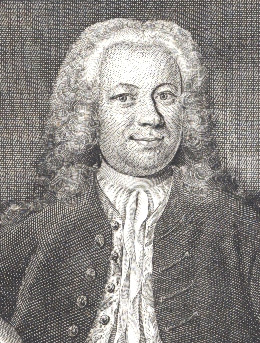| Profile | Major Works | Resources |
Georg Heinrich Zincke, 1692-1768.

German Neo-Cameralist.
A German preacher's son, Georg Heinrich Zincke left school at any early age to join the army. He fought in the War of Spanish Succession, was captured in 1709 and taken as a prisoner to France. After escaping from a P.O.W. camp, Zincke made his way to Jena to pursue a course of studies in theology and law, obtaining a master's degree in 1713. After a brief employment with a noble family, he proceeded to Erfurt, where he set himself up as a teacher and preacher. He also lectured and took courses at the University of Halle.
G.H. Zincke obtained his Dr. Juris. at Erfurt in 1720 and became a lawyer and government official in Halle. In 1731, he proceeded to take up a position as Hofrath with the Duke of Saxe-Weimar. But Zincke's administrative improprieties resulted in his arrest and imprisonment for three years. After his release, the wretched Zincke was taken up by Duke Christian in Saalfeld.
In 1740, his health restored, Zincke declined a position in St. Petersburg to become a lecturer at the University of Leipzig on law and Cameralistics. He published several outlines of courses of lectures (1742). Zincke also founded and edited a cameralistics journal (Leipziger Sammlungen), which ran from 1744 until 1767.
In 1745, Zincke left his academic perch in Leipzig to take up a position as professor and curator of the new Collegium Carolinum in Brunswick. Although with grand title and position there, Zincke did not have as much administrative control over the institution as he had hoped. He continued lecturing at the school and a position in the service of Brunswick-Lüneburg. During this period, G.H. Zincke produced his Cameralisten Bibliothek (1751), a monumental bibliography of Cameralist works, and his introductory Anfangsgründe (1755)
|
Major Works of Georg Heinrich Zincke
|
|
HET
|
|
Resources on G.H. Zincke
|
All rights reserved, Gonçalo L. Fonseca
